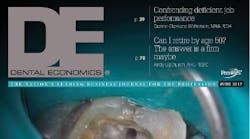Dear Dianne,
I have a staff member at my business desk who has been with the office for more than 30 years. (I purchased the practice three years ago.) She is a delightful lady, a real “people” person, and my patients love her. However, she has been very reluctant to learn to do things the way I want them done, especially on the computer. I changed software last year, and my staff as a whole has been wonderful with the transition. All of my staff except one business assistant. I am increasingly frustrated with her limited computer abilities, but I can’t imagine firing her either. My other business assistant is so busy that she does not have time to devote to training. Any suggestions?
- Dr. Mike
Dear Dr. Mike,
Most likely, this staff member’s lack of computer savvy stems from the fact that computers were not part of her life until well into adulthood. Not only is she intimidated by the system itself, but she’s probably painfully aware that her younger coworkers seem to have no problems maneuvering the system. Today, even small children are increasingly computer knowledgeable.
One thing I know for sure—people can be taught to do almost any task, but warmth and caring can’t be taught. People either have those traits, or they don’t. This staff member’s ability to connect with people (in particular your patients) is a valuable quality. I’ll bet some of your patients look forward to coming in just to see her smiling face at the front desk.
Clichés aside, I believe if your staff member is willing, she can learn. So here is what I recommend:
- Identify specifically what you wish to change about her job performance and make a list. Write down those areas that you have observed that are deficient. Be realistic and specific.
- Pick the top three things on your list. This is where you will begin.
- Find out what training modules or on-site training are available for your staff member. Don’t be shy about investing in training that will help this valuable front office member do her job better. Training when the office is closed to patients is best.
- Set up a meeting with the staff member. Begin by telling her how much you appreciate her and her wonderful manner with the patients.
- Next, use these words: “I need your help with something, which is why we’re having this chat. I have noticed that you struggle with certain computer tasks, so I believe some training would be beneficial.”
- After you have given her some specifics about the training you want her to have, ask her this key question: “Do you feel like this is something you can do?”
- If the staff member is willing, she will answer affirmatively. If she is not willing to expend the effort to learn, she might decide on her own to leave. It’s her choice.
- Set another meeting with her one to two weeks after training to gauge her progress with the areas that are deficient.
Making sure that staff members are properly trained to do their jobs is part of your responsibility as an employer. Also, remember that your staff members must be compensated for time worked while training. Consider it a good investment if it helps someone ramp up their skills and it reduces your frustration level. Finally, be sure to praise this person publicly when you see her efforts toward improvement. A good word from the boss is pure gold.
All the best,
DIANNE
Dianne Glasscoe Watterson, MBA, RDH, is a consultant, speaker, and author. She helps good practices become better through practical on-site consulting. Please visit Dianne’s website at wattersonspeaks.com. For consulting or speaking inquiries, contact Dianne at [email protected] or call her at (336) 472-3515.
About the Author

Dianne Glasscoe Watterson, MBA
Speaker, author, and consultant
Dianne Glasscoe Watterson, MBA, is a consultant, speaker, and author. She helps good practices become better through practical on-site consulting. Visit Dianne's website at wattersonspeaks.com. For consulting or speaking inquiries, contact Dianne at [email protected] or call her at (336) 472-3515.
Updated April 29, 2016
